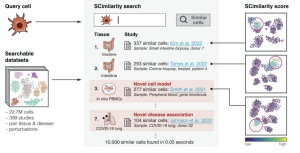Experts call for more research into long COVID, as study reveals high prevalence in WA

Researchers say more support is needed for patients suffering from long-term illness associated with a COVID-19 infection, with new data showing a large number of West Australians have been left unable to work due to their crippling symptoms.
The Australian National University (ANU) study surveyed 11,000 people who tested positive to COVID during a significant outbreak of the Omicron variant in WA in 2022.
The study published in March found almost 20 per cent of those patients were still suffering symptoms of fatigue, memory loss and concentration difficulties three months after they first became sick.
Lead researcher Mulu Woldegiorgis said there was little pre-existing data available on the topic, but that the new research suggested there was a high rate of long-term COVID-19 symptoms in WA.
“It is more than double the prevalence reported in a review of Australia data from earlier in the pandemic, and higher than similar studies done in the UK and Canada,” she said.
In their report, Dr Woldegiorgis and her colleagues acknowledged one of the limitations of the ANU survey was that it relied on subjective symptom descriptions from patients, and the reported impact of their symptoms on work or study was not independently verified.
Dr Woldegiorgis said it was important for patients’ symptoms to be taken seriously.
“I think it’s real and it needs more investigation,” she said.
“When we see its impact on work or study, more than one in six of those who used to work before their infection were not able to fully return to work or study due to their ongoing symptoms.”
‘Life has become small’
Joanna Lewis caught COVID almost two years to the day.
When she still had symptoms weeks later she thought she might have contracted Ross River virus again.
“I could be standing at the kitchen bench and I’d feel short of breath,” she said.
“It was almost like my body had forgotten to breathe, which is really bizarre.”
She experienced tachycardia and POTS – postural orthostatic tachycardia syndrome – which meant her heart rate shot up more than 30 beats a minute when she sat or stood up.
She had to take leave from work and suffered financially, burning through her savings and taking on students as boarders to bring in enough money to survive.
These days the 42-year-old is most afflicted by fatigue.
“I do have, I’ve found, about six hours on average … upright, I do have to spend probably most of my day lying down and resting,” she said.
“It just means life becomes very small.”
Government urged to do more
Rural GP Michael Livingston said he was seeing large numbers of people through his practice in Narembeen, in WA’s Wheatbelt, with unexplained fatigue and brain fog.
“I’m seeing younger people who just aren’t bouncing back the way they thought they would do,” he said.
“Some people think they have dementia, such is their concern about their memory and ability to recall simple tasks.”
Dr Livingston suspects long COVID could be to blame and urged people not become complacent about COVID prevention.
“We really need to be questioning the why of this and what personal choices we’re making and how complicit we are being around this,” he said.
Dr Livingston said authorities should develop a “clean air policy”, and could consider fitting classrooms, workplaces and public transport with specialised air filters.
WA Health Minister Amber-Jade Sanderson said the government was keeping a close eye on any evidence relating to long COVID.
“I think there’s some conflicting views globally around the impact of long COVID but we continue to watch it closely,” she said at a press conference on Tuesday.
Loading







